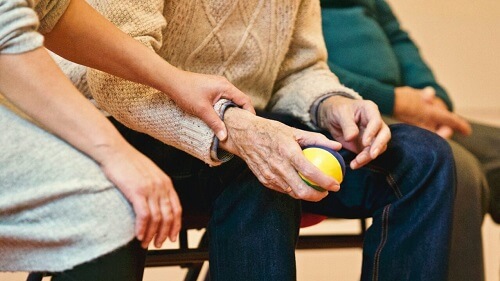Most US people nowadays can wish to live longer than before. The early diagnosis of common health concerns which are linked to aging and our family’s medical history is essential for maintaining a healthy life as we grow older. Seniors can restrict the rapid growth of many health issues by taking smart, healthy decisions and by frequent visits to healthcare centers.
In this article, we’ll discuss three of the most common health issues associated with aging and how to get rid of these health issues most effectively.
High blood pressure and dementia
Among the most common diseases where the blood is continuously pressed up against the walls of your arteries is high blood pressure. Numerous other disorders can be a cause of high blood pressure.
The term “dementia” refers to a wide range of symptoms, including memory loss, difficulty finding words, poor judgment, and problems with daily activities. All of these symptoms are caused by damage to the brain’s ability to produce new brain cells.
Why its a concern?
High blood pressure affects the blood vessels of the brain and leads to the hardening of the arteries. it also damages tiny blood vessels and the brain’s ability to control blood flow, which is essential in keeping the brain working properly. For everyone control of blood pressure should be a primary concern as blood pressure can put stress on the brain heart and kidneys. Keeping a balance in blood pressure is vital to maintain overall health.
What You Can Do About It?
1. Control of blood pressure: Usually dementia symptoms appear in senior people who are 60 and above age. Control of blood pressure before age 50 can also benefit in stopping the growth of dementia.
2. Exercise, eat well, and drink sparingly: Consume a diet high in fruits, vegetables, and fiber that is low in sodium and fat while exercising and maintaining a healthy weight. Women should only have one drink each day, while males should limit their intake to two.
Stroke
A sudden interruption in the blood supply to the brain is known as a stroke. Sudden obstructions in the arteries that supply the brain are the main cause of strokes. A blood vessel rupture results in bleeding into the brain tissue, which causes subsequent strokes.
Actions you can take
Learn how and where to recognize the symptoms of a stroke. Knowing the symptoms of a stroke allows you to take action as quickly as possible and seek medical care if necessary.
- Numbness – The most common initial symptom is sudden facial numbness. Those who have had a stroke may also lose feeling in their hands, feet, arms, and legs, or on one side of their body entirely, while the other side remains fully functional. Any numbness in the body, no matter how small, maybe a sign of a stroke.
- Because a stroke affects the brain, many people suffer from mental confusion and difficulty speaking. This could manifest as difficulty speaking, incoherent speech, or incorrect word usage. Speech patterns are frequently slurred. The individual may also have difficulty understanding the situation or have no memory of the previous few moments.
- Complete blindness may occur, and many people experience limited vision as an understanding of image is also a common sign.
- A sudden headache, especially one that is severe, can be a sign of a stroke, particularly if it has no known cause, the person has no history of headaches, and it is accompanied by symptoms like dizziness, confusion, numbness, or difficulty speaking. If these signs occur, seeking immediate medical attention is crucial.
Why its a concern?
A stroke is always a medical emergency. While only one in every five stroke victims dies, the majority of survivors suffer long-term physical and mental effects, so prompt medical attention is critical.
When in doubt, use these f.a.s.t. tests. If you are ever unsure whether a person is having a stroke, there are a few tests you can perform. To make these tests easier to remember in an emergency, the American Heart Association uses the acronym f.a.s.t.
- F: Drooping Face-First, ask the person to smile. If one side of their face appears to droop or feels numb, they may be suffering from a stroke.
- A: Arm Weakness-Request that the individual raises both arms above their head. If they have difficulty because of muscle weakness or one arm appears to droop, this is a strong indication of a stroke.
- S: Speech difficulty- Request that the person repeat a simple sentence, such as their name or a weather comment. Call 911 if they have difficulty repeating or remembering the word, or if their speech is slurred or nonsensical.
- T: Call 911 if the patient is having difficulty completing any of these tests, or if they are experiencing the symptoms listed above or other unusual signs. Even if you’re not certain the person is having a stroke, it’s always best to err on the side of caution. Strokes can have long-term consequences, so immediate medical attention is required.
Difficulty Swallowing
Dysphagia refers to difficulty swallowing. Dysphagia is typically caused by diseases or nerve or brain damage. Those suffering from a stroke, brain injury, Parkinson’s disease, multiple sclerosis, Alzheimer’s disease, dementia, amyotrophic lateral sclerosis (ALS), head-neck cancer, and head or neck injuries or surgeries may have difficulty swallowing. When you or someone else is having difficulty swallowing, look for the following signs and symptoms:
- Crying while eating or drinking
- A wet gurgly voice while eating or drinking
- Extra effort or time required to chew or swallow food liquid leaking from or becoming lodged in the mouth
- Following-meal pneumonia or chest congestion
- Weight loss or dehydration as a result of not eating enough
- You have the sensation that food is stuck in your throat.
It is important to pay attention to these signs and symptoms. Dysphagia can cause someone to easily choke or can cause food or liquid to go into the lungs, which can lead to pneumonia and other breathing problems.
Why its a concern?
Eating and drinking are essential parts of our daily lives. They provide essential nutrition and hydration, and they are enjoyable activities to do with friends and family.
What do you do about it?
Dysphagia prognosis varies by individual and is determined by several factors, including age, overall health, and the cause of the dysphagia. Many people experience a significant reduction in symptoms and an improvement in their ability to swallow with early diagnosis and treatment.
- Consult a healthcare professional- If you or someone you know is having trouble swallowing, talk to your doctor, who may refer you to a speech-language pathologist (SLP) or speech therapist who works with people who have swallowing issues.
- have an evaluation- once a physician orders an exam, an SLP will assess them and may perform special tests to see inside their throat when they swallow.
- Following the completion of the evaluation, an SLF may work to help strengthen the muscles used for swallowing. An SLF may also recommend dietary texture changes to make swallowing easier, as well as position or strategy changes to improve swallow safety.
Other health challenges for seniors
in addition to more commonly known issues, including cognitive decline, cancer, and arthritis, there are other medical concerns we face as we age, including:
- Oral health concerns – Healthy teeth and gums are essential. Gingivitis, for example, can lead to periodontitis, a bacterial infection of the gums and bones that support the teeth. Regular dental checkups and proper oral health care can help ensure healthy teeth and gums.
- Fragile bones – Keeping your balance and mobility is essential for fall prevention. Falls are especially dangerous if you have osteoporosis, a condition in which your bones lose density and become more prone to breaks and fractures. Eating plenty of fruits, vegetables, and calcium-rich foods is one way to keep your bones strong.
- Influenza and Pneumonia – Because their immune systems aren’t as strong as they once were, seniors are more vulnerable to these illnesses. It is critical to get a flu shot every year. Also, ask your doctor if getting the pneumonia vaccine is something they recommend.
- Weight Gain – As we get older, we tend to become less active, our metabolism slows, and our bodies naturally lose muscle. The risk of disease rises as one’s weight rises. Consult your doctor about how to combat weight gain while remaining healthy.
- Depression can reduce immunity and can make a person prone to diseases. Depression can be treated with medication and psychotherapy, as well as by seeking out ways to connect with others, such as social engagements, participating in classes, and volunteering.
- Often, senior people deal with multiple health issues at once, making it difficult to treat all of them effectively.
- Gather all of the information you require to assist you in treating yourself or a loved one.
- You must need to communicate frequently with healthcare specialists.
- Consult with your doctor to create a plan for diagnosis that is suitable for you and adjustable to your lifestyle.
- Take proper care of yourself and other seniors in your life, and seek medical assistance on a regular basis—especially if you have a medical emergency.
For more information and personalized support, reach out to River Park Senior Living. Our dedicated team is here to help you and your loved ones navigate the challenges of aging with compassion and expertise.





